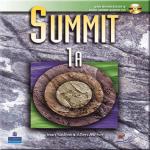|
آموزش TopNotch و Summit با فهیمه فنایی و زبان آموزان خانه جوان اصفهان
Discourse Strategies There’s a lot of exciting new music these days. There are some really annoying shows on TV these days. There are some good restaurants around here. There have been some interesting stories in the news recently. I’ve seen some great movies recently. There are some great museums in this town. There are some great shows on TV these days. There have been some depressing stories in the news lately. There are a number of interesting things to do in this neighborhood. I’ve read some really good books lately. There are some nice shops downtown. Your own idea:
پنج شنبه 19 ارديبهشت 1392برچسب:, :: 11:9 :: نويسنده : Zoleikha AliOmran Discourse Strategies (Unit 1, page 11)
Showing surprise ( falling intonation)
No! Wow! Amazing
Conversation 1
Conversation 2
Summit 1 Unit 1 پنج شنبه 19 ارديبهشت 1392برچسب:, :: 10:55 :: نويسنده : Zoleikha AliOmran Reading Strategies 25% __ 1. پنج شنبه 19 ارديبهشت 1392برچسب:, :: 10:33 :: نويسنده : Zoleikha AliOmran Reading Strategies پنج شنبه 19 ارديبهشت 1392برچسب:, :: 10:26 :: نويسنده : Zoleikha AliOmran
پنج شنبه 19 ارديبهشت 1392برچسب:, :: 10:17 :: نويسنده : Zoleikha AliOmran Reading Strategies Classifying information When a reading contrasts two ideas, you can try to classify the information under each Practice. Write four statements the reading makes about each type of person. OPTIMISTS PESSIMISTS 1. 1. 2. 2. 3. 3. 4. 4. Summit 1 Unit 1 پنج شنبه 19 ارديبهشت 1392برچسب:, :: 10:8 :: نويسنده : Zoleikha AliOmran
Vocabulary-Building Strategies (Unit 2, page 20: Vocabulary; Use after Exercise D)
Associating When you associate, you think about how new vocabulary relates to other words and concepts you already know. Taking a few minutes to make associate ions will help you better understand and remember new vocabulary .
Practice. Work with a partner or small group. Complete the gifted word web by thinking of other related words and examples. Then create word webs for the other vocabulary items. Use the back of this page if needed.
Idea. Try associating vocabulary you learn in later units with words and ideas you know. Draw a word web for each new vocabulary word and associate each with words and ideas you already know. gifted difficult moody passionate egotistical eccentric energetic imaginative Picasso genius talented
Summit 1 Unit 2
Copyright © 2006 by Pearson Education. Permission granted to reproduce for classroom use.
شنبه 14 ارديبهشت 1392برچسب:, :: 20:2 :: نويسنده : Zoleikha AliOmran
Vocabulary-Building Strategies (Unit 2, page 16: Vocabulary; Use after Exercise B)
Associating After you have learned new vocabulary , it ’s good to associate it with concepts you already know. This can help you better use and remember the vocabulary.
Practice. Make associations by describing musicians or songs you like using the Elements of Music vocabulary, as well as appropriate adjectives. Fill in the boxes below. Then work with a partner. Take turns talking about musicians or songs and elements of music.
Idea. Try making associations with vocabulary in later units. Adjectives
catchy beautiful great interesting terrific unforgettable unique exciting nice (other) Person or Group name of song, singer, musician, songwriter, group, band, or orchestra Elements of music sound voice lyrics beat melody (other)
Beyoncé + terrific + voice Summit 1 Unit 2 Copyright © 2006 by Pearson Education. Permission granted to reproduce for classroom use.
شنبه 14 ارديبهشت 1392برچسب:, :: 19:48 :: نويسنده : Zoleikha AliOmran
Vocabulary-Building Strategies
(Unit 1, page 13; Use after Checkpoint)
Creating a personal glossary
As you enter higher levels of English study , developing a broad, rich vocabulary becomes an
Important goal . Creating your own glossary in a notebook devoted to new vocabulary will
help. After you have studied new material , select new words you feel will be the most useful
for you. Add these words to your personal glossary .
Practice. Look back over the unit. Choose eight new words that you haven’t mastered yet, but would like to
add to your personal glossary. Write them below. For each word, write the meaning, part of speech, and an example sentence. Note the pronunciation if helpful. Use a dictionary as needed.
cynical adj. unwilling to believe that people have good, honest, or sincere reasons for doing
something: A pessimist is more cynical and believes life will always be difficult and painful.
1
2 3
4
5 6 7
8
Idea. Buy a small pocket notebook for your personal glossary. Carry it with you so you can review vocabulary
at any time. Remember to select and add new words from each new unit to your notebook.
Summit 1 Unit 1
Copyright © 2006 by Pearson Education. Permission granted to reproduce for classroom use
شنبه 14 ارديبهشت 1392برچسب:, :: 10:12 :: نويسنده : Zoleikha AliOmran Vocabulary-Building Strategies
سه شنبه 10 ارديبهشت 1392برچسب:, :: 21:33 :: نويسنده : Zoleikha AliOmran درباره وبلاگ  به وبلاگ ما خوش آمدید. در این جا شما می توانید نکان مهم دوره های آموزشی زبان انگلیسی را مشاهده نمایید . فهیمه فنایی از دبیران باسابقه تصمیم به ایجاد و به روزرسانی هرروز این وبلاگ گرفته تا بر اساس آن بتوان گام دیگری در جهت اهداف آموزش زبان انگلیسی به علاقمندان بردارد. اینجانب (زلیخا علی عمران) افتخار مدیریت وبلاگ و همکاری در زمینه های نویسندگی و ویرایش مطالب در وبلاگ ایشان را دارا می باشم . امید است که مورد رضایت بازدیدکنندگان محترم باشد. لطفا نظرات و پیشنهادات خود را برایمان بنویسید تا برای بهبود هر چه بیشتر وبلاگ از آن استفاده کنیم. آخرین مطالب پيوندها
نويسندگان |
||
|
|